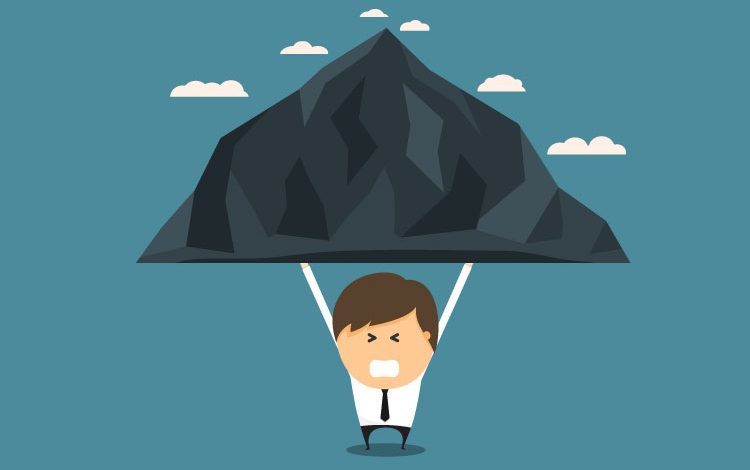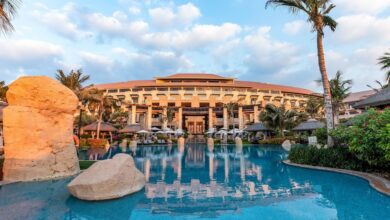
Sector needs urgent “hand up not hand out” due to COVID alert level uncertainty
The decision by the Government early this week to extend Auckland’s Level 3 lockdown restrictions keep the rest of the country in Alert Level 2 is frustrating for the hospitality sector who is suffering the heavy burden of keeping New Zealand safe. Industry leaders lead calls for targeted sector help and hoteliers demand relief from the many millions of dollars hoteliers pay in fixed costs hotels such as local council rates, levies, insurance and other compliance costs.
Tourism Industry Aotearoa (TIA) acknowledges the extension of the COVID-19 Alert Levels is needed to protect the health of New Zealanders, but it’s worried for businesses around the country who are desperately trying to survive. Hospitality New Zealand (HNZ) fear the alert level uncertainty puts the hospitality sector’s survival under threat.
New Zealand Hotel Owners Association (NZHOA) says that hotels and other commercial accommodation providers feel they have been side-stepped by the government and are concerned about the lack of tailored financial support received by hotels. This is crucial given the unique set of challenges faced.
Amy Robens, Executive Director of NZHOA told AccomNews: “While Covid-19 is by no means isolated in the devastating impact it has had on businesses across all sectors, while cafes, restaurants and bars were back to ‘business as usual’ last month with spend volumes up 9.9 per cent to $987 million, hotels continued our sustained period of little revenue and unpredictable future bookings.
“We simply can’t endure continued re-enforced lockdowns. Domestic travel had been a welcome relief, despite it not providing the volume that hotels need to be profitable, and that volume won’t return anytime soon with our international borders closed. With Covid-19 relentless, and new clusters now emerging in Auckland, we are going to remain in survival mode for much longer than we can maintain.
“Hoteliers worked hard, partnering with local tourist attractions, providing highly competitive packages and leveraging off Tourism New Zealand’s domestic travel campaigns – now we feel like we are back to square one. We will continue to trade in a downward cycle until tourism demand re-emerges, and the likelihood of that happening gets further and further way. Anticipated previously for the first quarter of 2021.
“A just released report by the New Zealand Institute of Economic Research (NZIER), which considers how other countries manage the Covid-19 crisis and the impact that has on New Zealand’s tourism recovery, predicts that the destructive path of Covid-19 and subsequent impact on businesses will persist well into 2023.
“The government has constantly signalled that there is more financial support on the way. We need to see it in the form of a tailored wage subsidy, so the hotel sector can retain our crucial human capital. Our workforce has been depleted, literally halved in size from 20,000 at its peak, and we need support to rebuild.
“We’re not asking for a hand out, we are asking for a hand up. We urgently need some relief from the many millions of dollars hoteliers pay in fixed costs hotels such as local council rates, levies, insurance and other compliance costs. Some hotels have closed, others mothballed – how many more hotels need to shut their doors before support for our sector is provided.”
In an industry that has been reeling from the effects of the first lockdown and ongoing border closures since March, the raised alert levels almost two weeks ago to contain a community transmission outbreak in Auckland has further crippled many businesses in the sector.
TIA revealed that consumer spend data shows that tourism operators from one end of the country to the other are being adversely impacted by the Level 3 restrictions in Auckland. The information, provided by the Ministry of Business, Innovation and Employment, comes from electronic transaction data. It shows that total consumer spend in Auckland fell by 24 percent in the week ended 16 August compared to the previous week, reflecting the first five days of Level 3 restrictions.
For most other regions in New Zealand overall spend was up for the week, suggesting that most economic activity was continuing under Level 2.
However, in taking a closer look at the numbers and removing international visitor data, this shows that accommodation spend by New Zealanders was down 24% across the country compared to the week before.
Food and beverage spend by New Zealanders was also down 27 percent compared to the week before, with transport and travel spend down 36 percent compared to the week before.
TIA Chief Executive Chris Roberts explained: “In other words, the spend on tourism and hospitality across New Zealand has been significantly curtailed by the restrictions on travel into and out of Auckland. While Aucklanders have suffered the greatest restrictions, the economic impact is being felt by tourism operators across the country.”
Mr Roberts says tourism businesses are relying solely on domestic visitors for the foreseeable future and many are struggling to survive with the diminished demand: Losing a third of the domestic visitor market has been a serious blow on top of the closed borders. Continuing alert level restrictions, including restrictions on large gatherings, will put more pressure on tourism businesses and jobs, so further targeted government support will be necessary.”
TIA adds: “While the safety of New Zealanders is paramount, the Government must acknowledge that COVID-19 responses have disproportionately impacted the tourism industry. The package announced back in the May Budget cannot be the end – if we are to have a tourism industry that survives the biggest crisis in its history, there will need to be ongoing targeted relief.”
Hospitality New Zealand (HNZ) Chief Executive, Julie White agrees that the safety of all New Zealanders is our first priority and points out that HNZ supported the Government’s directive to stamp out COVID-19 when it re-emerged in the Auckland community.
However, Julie says: “Its’s very frustrating for the regions outside of Auckland to still have to operate under Level 2. It’s still extremely restrictive for our operators. With this extension in Auckland, the hospitality sector will be in a state of carnage, because these lockdown measures will have a ripple effect across the entire country.”
Whilst it was said that up to 80 percent of businesses were able to operate at Level 3 in one form or another, HNZ says that for its sector, operating at Level 3 was still similar to lockdown. According to MBIE’s latest figures, Auckland’s domestic spending was already down 33 percent last week, Food & Beverage spend was down 36.8 percent and accommodation down 47.5 percent nationally compared to the same week last year.
Julie advised: “Unless you have a food and beverage establishment that is fully set up for takeaway service, it’s very difficult to operate under Level 3, as you simply don’t generate enough income to sustain working seven days a week. And as for operating under Level 2, this is still quite prohibitive because abiding by the three S’s and limiting venues to 100 people, greatly reduces income.”
She added that operating under a cloud of such uncertainty with possibly yo-yoing between alert levels is not a sustainable solution.
“We are all doing our part to keep our fellow Kiwis safe, but the Government’s decision still leaves great uncertainty. We cannot continue to go up and down Alert Levels and in and out of lockdown. The uncertainty is decimating our sector. These businesses need time to prepare stock, adjust rosters and have grappled with changing restrictions at each Alert Level. We need some solace” she said.

AccomNews is not affiliated with any government agency, body or political party. We are an independently owned, family-operated magazine.







